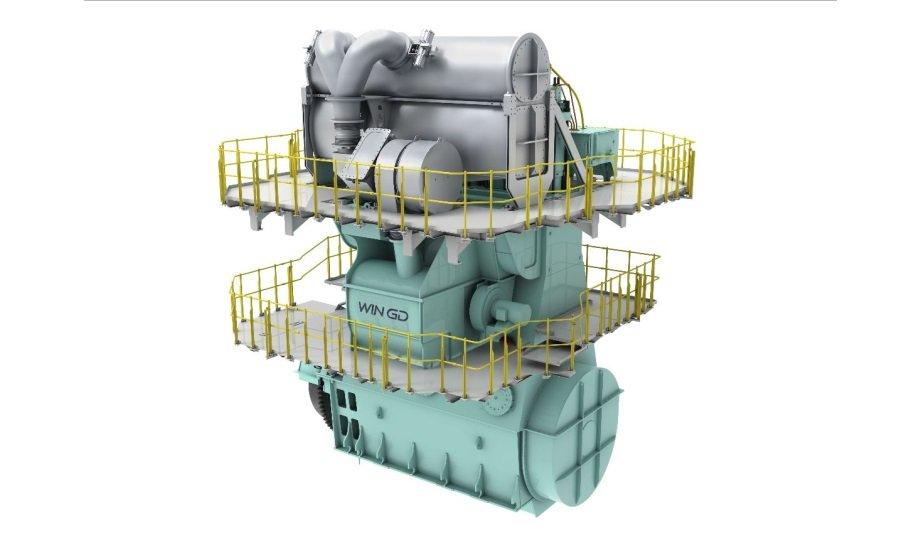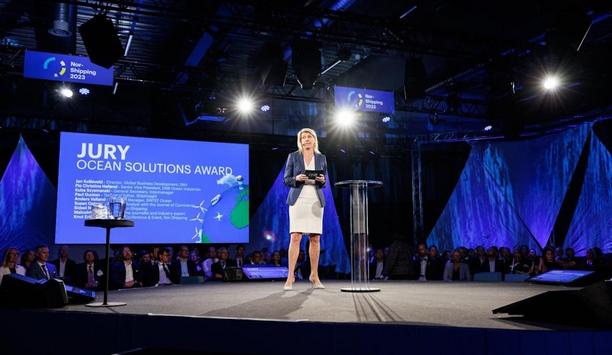The only on-engine NOx reduction solution for marine two-stroke engines, designed by Swiss marine power company WinGD, will be deployed for the first time on commercial engines after securing type approval.
The integrated Selective Catalytic Reduction (iSCR) solution was tested at Mitsui E&S DU (MESDU) Co’s factory in Aioi, Japan, where three WinGD 5X52-S2.0 engines are being built for bulk carriers under construction at a Japanese shipyard.
Iteration features
The type approval follows more than two years of service experience with a prototype version. The latest iteration features reduced material and production costs, a heating unit to enable operation with heavy fuel oil, and design changes to deliver further reductions in ammonia slip.
WinGD Vice President Product Centre, Peter Krähenbühl, said, “WinGD’s unique on-engine NOx abatement solution secures IMO Tier III compliance while giving operators greater flexibility in engine room configuration and ship design. This new iteration further reduces the cost impact of NOx abatement and improves the efficiency of treatment with both existing and emerging fuels.”
Integrated Selective Catalytic Reduction
Testing and commissioning are simplified as the engine and NOx abatement system can be tested
As well as reducing the footprint of off-engine equipment, iSCR also simplifies piping requirements compared to either low- or high-pressure SCR off-engine units.
Testing and commissioning are simplified as the engine and NOx abatement system can be tested together before installation. Optimised exhaust flow management and waste heat from the engine contribute to favourable conditions for treatment.
Test performed and witnessed
The test was held on January 16th and was witnessed by representatives from eight classification societies: ABS, BV, CCS, DNV, KR, LR, ClassNK, and RINA.
The iSCR technology is available as an option for WinGD’s 52- and 62-bore engines, including short-stroke variants, using fuel oil, ammonia, or methanol. Extension to further engines will be evaluated based on market demand.










